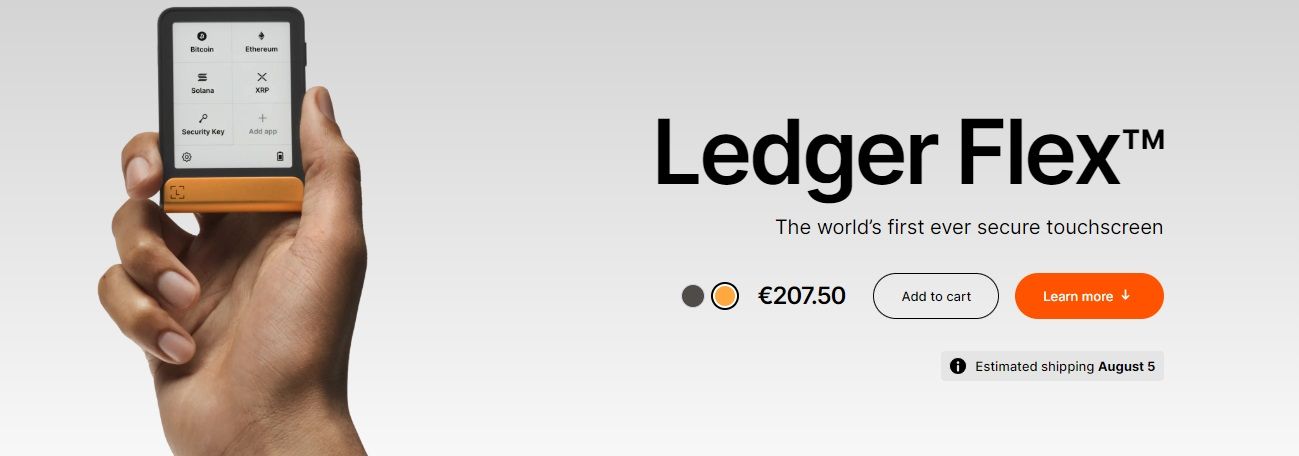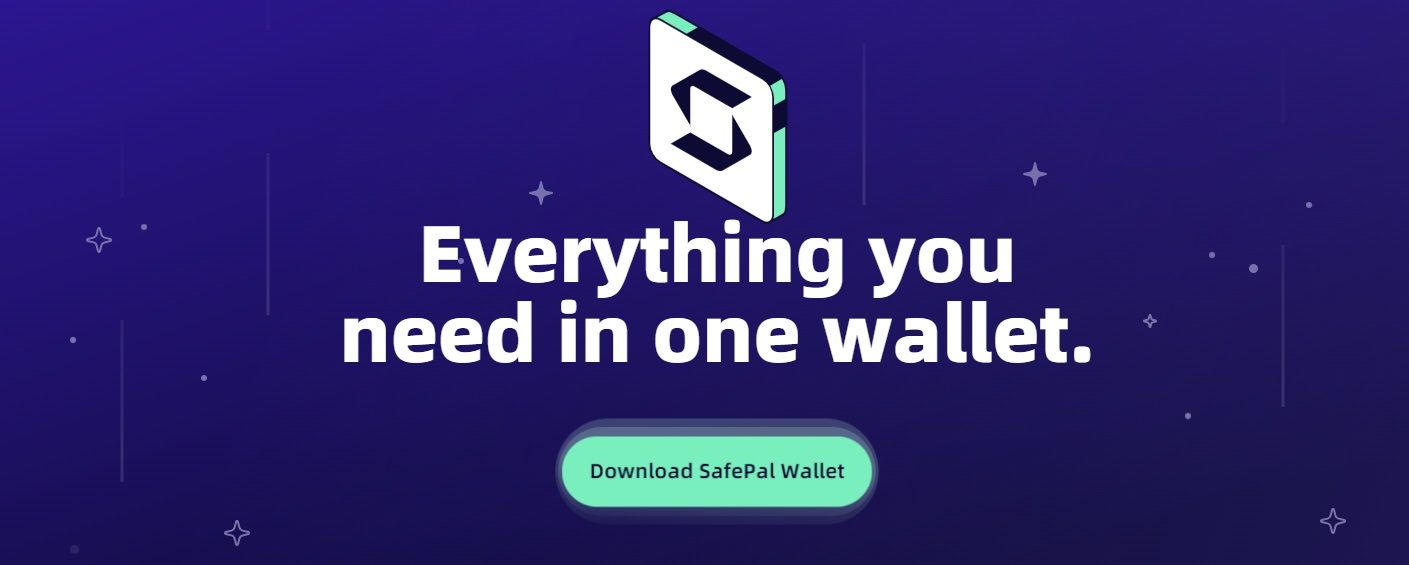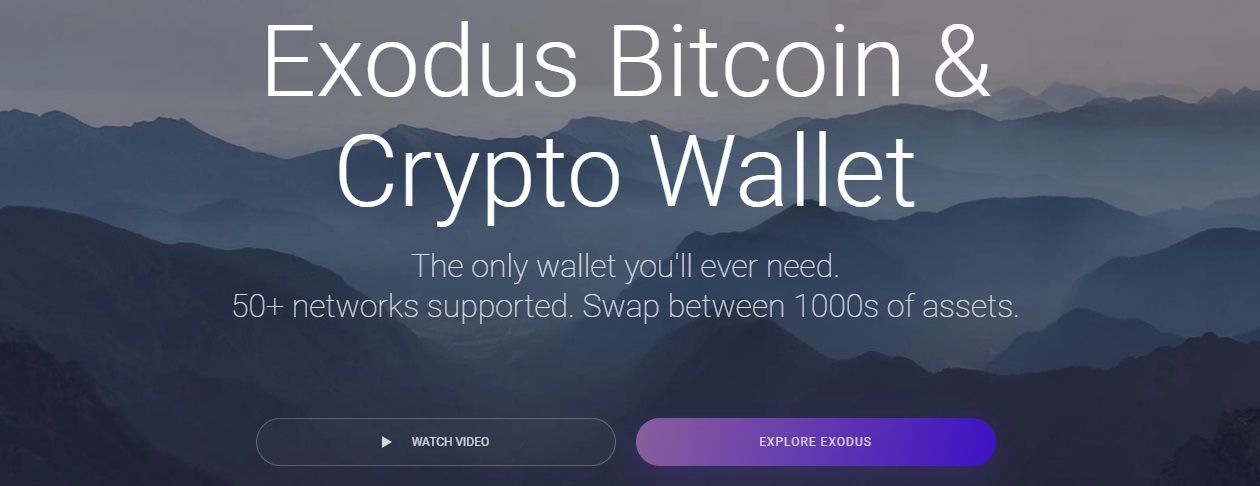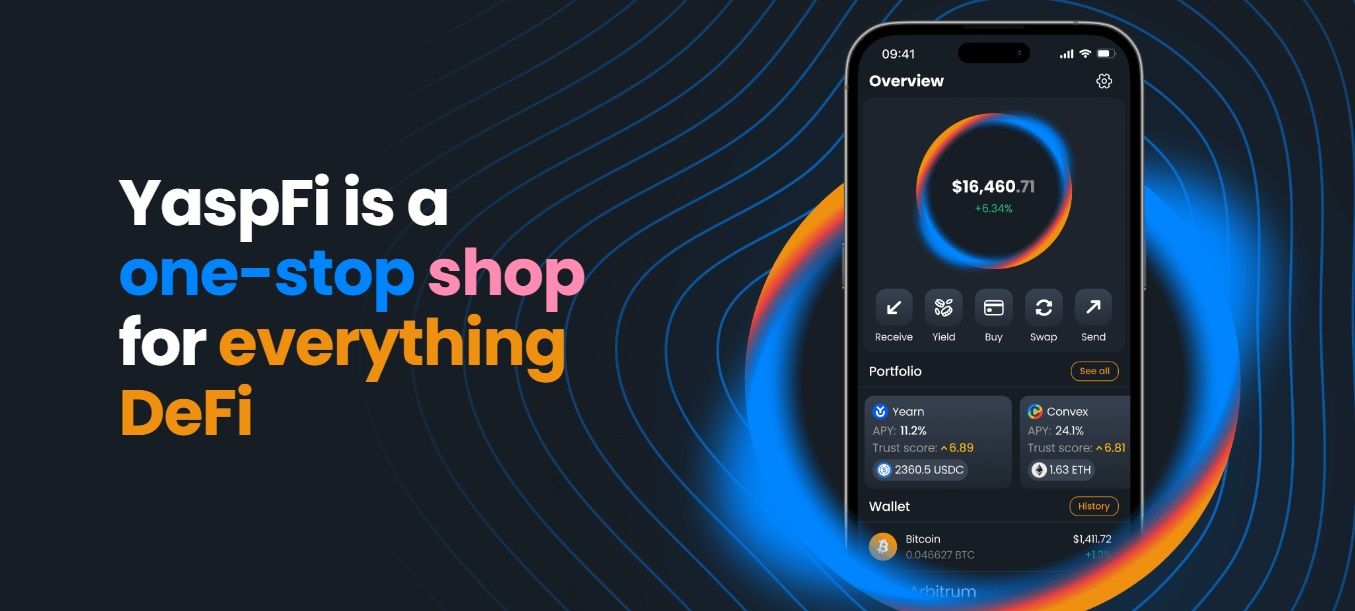The world of cryptocurrencies has been expanding of late, making secure and efficient tools for managing digital assets essential. At the forefront of this ecosystem are crypto wallets, digital tools that store, manage and facilitate transactions.
Choosing the right wallet involves more than just security — it's about convenience, functionality and support. A well-chosen wallet ensures easy and secure crypto asset management, safeguarding private keys and facilitating smooth transactions.
One of the rising stars in the blockchain space is Base, an Ethereum Layer 2 (L2) network offering enhanced scalability and reduced transaction costs while maintaining security and decentralization. Base's full compatibility with Ethereum makes it appealing for developers and users alike, especially in the expanding realm of decentralized finance (DeFi).
In this top base wallets article, we will explore the best Base wallets, examining their features, security measures and how they can enhance your crypto experience. But first, we'll highlight how to choose the best Base wallet, guiding you through the key factors to consider in making an informed decision.
How to Choose the Best Base Wallet
Base is a secure, scalable and low-cost Ethereum Layer 2 (L2) network developed to support decentralized applications (DApps) efficiently. Built on the OP Stack, Base offers full compatibility with Ethereum, ensuring seamless integration and high performance. It aims to empower developers to build on a more accessible and user-friendly blockchain infrastructure, providing a robust foundation for a decentralized future.
 Base is an Ethereum Layer 2 Network. Image via Base
Base is an Ethereum Layer 2 Network. Image via BaseChoosing a wallet for Base involves several considerations to ensure it meets your needs for security, usability, compatibility, and of course some personal preferences as well. So, let's take a look at some key factors to consider when selecting a Base wallet, or really, any wallet:
Security Features
- Self-Custody: In the crypto world, the mantra “not your keys, not your coins” is a cornerstone of security. Opt for wallets that allow you to maintain control over your private keys. Hardware wallets like Ledger provide top-notch security, while software wallets like MetaMask also offer self-custody, balancing convenience with control.
- Protection Measures: The digital landscape is fraught with dangers, and your wallet should be equipped to counteract them. Look for wallets with built-in security features such as phishing protection, two-factor authentication (2FA), and backup options. These measures can add an armour-grade layer of defense.
However, a critical point to understand is that 2FA helps enhance security on custodial platforms like Binance by adding extra verification layers to ensure only authorized users can access and manage funds. So, for non-custodial wallets like Trust Wallet or MetaMask and others, 2FA isn't applicable as these wallets rely solely on blockchain recovery phrases for security.
User Experience
- Ease of Use: A wallet’s interface should be intuitive, simplifying the process of sending, receiving, and managing tokens.
- Support for DApps: Decentralized applications (DApps) are at the heart of the Base network's ecosystem. Ensure the wallet supports DApps, enhancing your interaction with various blockchain-based services. Think of this as having a universal remote that can control all your smart devices.
Compatibility
- Multi-Chain Support: If you plan to interact with multiple blockchains, select a wallet that supports various networks, including Ethereum and Base. MetaMask is a popular choice for this reason, acting as a gateway to a multitude of crypto universes.
- Token Support: Confirm that the wallet can handle the specific tokens you intend to use on Base, such as ETH, USDT, and USDC. This compatibility ensures smooth transactions and asset management.
Community and Support
- Reputation: A wallet’s reputation within the crypto community can provide insights into its reliability.
- Customer Support: Consider the availability and responsiveness of customer support. Should you encounter issues, efficient customer service can be a lifesaver; because imagine crying for help with no answer.
Features and Functionality
- Transaction Management: Look for wallets that offer features like transaction history, gas fee management, and the ability to swap tokens easily. These functionalities streamline your crypto activities and give you more control over your crypto management.
- Updates and Improvements: Choose a wallet that is regularly updated and improved, ensuring it remains secure and functional over time. Regular updates are like software patches that keep your tools sharp and effective.
Personal Preferences
- Mobile vs. Desktop: Decide whether you prefer a mobile wallet for convenience or a desktop wallet for enhanced security. Your choice will depend on your lifestyle and how you plan to use the wallet.
- Additional Tools: Some wallets offer extra tools, such as market analysis and price charts, which can be beneficial for traders. These features add value, much like bonus content in a video game.
Top Base Wallets
Choosing the right wallet can be as challenging as picking the perfect smartphone. With numerous options available, each boasting unique features and benefits, it's essential to identify the best crypto wallet that caters to your specific needs. Whether you prioritize security, user experience, or compatibility, finding the right wallet can significantly enhance your crypto journey.
In this section, we will delve into the top base wallets that stand out in the market, offering a balanced mix of security, functionality, and ease of use. From hardware to software solutions, these wallets have been selected for their ability to provide a seamless and secure experience for managing your digital assets.
MetaMask
MetaMask, developed by ConsenSys, is a prominent software wallet that provides users with access to the Ethereum blockchain and other EVM-compatible networks, including Base. Known for its user-friendly interface, MetaMask is available as a browser extension and mobile app, making it a versatile tool for managing digital assets.
 MetaMask Prioritizes Security by Enabling users to Control Their Private Keys. Image via MetaMask
MetaMask Prioritizes Security by Enabling users to Control Their Private Keys. Image via MetaMaskSecurity
MetaMask prioritizes security by enabling users to control their private keys, stored locally on their devices. It features password protection, seed phrase backup, and advanced phishing detection. Although it is less secure than hardware wallets, MetaMask supports integration with hardware wallets like Ledger and Trezor for enhanced security.
Features
MetaMask offers a comprehensive set of features that cater to both novice and experienced users:
- Multi-Chain Support: In addition to Ethereum, MetaMask supports EVM-compatible chains like Binance Smart Chain, Polygon, Avalanche, and Base, as well as Layer 2 networks and sidechains.
- Token Management: Users can manage various ERC-20 and custom tokens, and purchase ETH or other native tokens via debit or credit cards.
- DApp Integration: Seamless integration with DApps allows users to engage in DeFi activities, NFT minting and more.
- MetaMask Snaps: An innovative feature extending MetaMask's functionality to support other networks like Bitcoin, Solana, and Cosmos.
User Experience
MetaMask is designed for ease of use, requiring no email or personal details for setup. Its intuitive interface simplifies DApp interactions and token management. The mobile app includes a built-in browser for direct DApp access, enhancing user convenience.
Community and Support
MetaMask has a robust community and extensive support resources, including a forum, educational materials, how-to videos, and active social media channels. The support team and community are available to help with any issues or questions.
Trust Wallet
Trust Wallet, developed by Viktor Radchenko and acquired by Binance in 2018, is a decentralized mobile cryptocurrency wallet supporting over 100 blockchains and millions of digital assets. Trust is also known for its user-friendly interface and extensive features, and provides a secure platform for managing crypto assets.
 Trust Wallet Benefits From the Support of Binance. Image via Trust Wallet
Trust Wallet Benefits From the Support of Binance. Image via Trust WalletSecurity
Trust Wallet offers self-custody of private keys, stored locally on users' devices. It includes biometric authentication and encrypted backups, although it currently lacks two-factor authentication. The wallet's open-source nature allows for transparency and trust, with audits conducted by security firms like Stateful.
Features
- Multi-Chain Support: Trust Wallet supports a wide range of blockchains, including Ethereum, Binance Smart Chain, and Base, making it versatile for various crypto activities.
- Staking: Users can stake coins like Tron, Tezos, Cosmos, and Binance Coin directly from the wallet to earn rewards.
- dApp Browser: Trust Wallet includes a Web3 browser for accessing DApps, enhancing user interaction with DeFi projects and NFT marketplaces.
- DEX Integration: The built-in decentralized exchange (DEX) allows for token swaps and trading directly within the wallet.
User Experience
Trust Wallet is designed to be intuitive, with a clean interface that simplifies the process of sending, receiving, and managing tokens. The app is available for both iOS and Android devices, making it accessible for users on the go.
Community and Support
Trust Wallet benefits from the support of Binance, providing extensive resources and a dedicated help center. Users can access FAQs, troubleshooting guides, and submit support tickets for personalized assistance.
Ledger
Ledger, founded in 2014 and headquartered in Paris, is a renowned company in the cryptocurrency security industry. It specializes in developing hardware wallets designed to protect users' private keys and digital assets. Ledger's hardware wallets — the Nano X, Nano S Plus, Ledger Stax, and the latest, Ledger Flex, offer top-tier security and innovative features. You can check out our detailed reviews on all of these Ledger wallets.
 Ledger Specializes in Developing Hardware Wallets to Protect Users' Private Keys and Digital Assets. Image via Ledger
Ledger Specializes in Developing Hardware Wallets to Protect Users' Private Keys and Digital Assets. Image via LedgerSecurity Features
Ledger wallets use a Secure Element Chip (ST33K1M5) and the custom BOLOS operating system to ensure robust security. Key security features include PIN protection, a 24-word recovery phrase, two-factor authentication (2FA), and multi-signature support. The Ledger Stax also includes a "Protection Mode" that locks the device during potential attacks.
Features
- Multi-Chain Support: Ledger wallets support multiple blockchains, including Base, offering extensive compatibility.
- Staking: Users can stake various cryptocurrencies directly from the wallet.
- Ledger Live App: This companion app enhances functionality, allowing users to buy, sell, swap, and stake cryptocurrencies. It also supports managing NFTs.
- Innovative Design: The Ledger Stax features a sleek, credit card-sized form factor with an e-ink screen for displaying NFTs and enhanced user interaction.
User Experience
Ledger wallets are designed for both novice and experienced users, with intuitive interfaces and extensive support resources. The Ledger Live App provides a seamless way to manage digital assets, monitor portfolios, and execute transactions.
Community and Support
Ledger offers comprehensive support through its website, including detailed guides, FAQs, and a responsive help center. The strong community and regular firmware updates ensure users have access to the latest features and security enhancements.
SafePal
SafePal, founded in 2018, offers a comprehensive suite of cryptocurrency wallet solutions designed to secure and manage digital assets. It is a standout choice due to its robust security features and extensive functionalities, supporting over 10,000 tokens across multiple blockchains.
 SafePal Wallets Offer Biometric Authentication and Encrypted Backups. Image via SafePal
SafePal Wallets Offer Biometric Authentication and Encrypted Backups. Image via SafePalSecurity
SafePal emphasizes strong security with several advanced measures. The hardware wallets, such as the S1 and S1 Pro, use air-gapped technology to keep private keys offline, protecting against remote attacks. They also feature Secure Element chips to enhance security further. Additionally, SafePal wallets offer biometric authentication and encrypted backups, ensuring secure access and data protection. The wallet's open-source nature allows for transparency and trust, with regular audits by security firms to maintain high security standards.
Features
- Multi-Chain Support: SafePal supports 56 blockchains, providing extensive compatibility for various crypto activities.
- Staking and Earn Programs: Users can stake various cryptocurrencies directly from the wallet and participate in SafePal Earn, a built-in DeFi yield aggregator.
- dApp Integration: The SafePal App includes a Web3 browser, enabling users to interact with decentralized applications (dApps) and NFT marketplaces seamlessly.
- Trading: The app features an integrated DEX (decentralized exchange) and CEX (centralized exchange) aggregator for smooth trading experiences, allowing for token swaps and trading directly within the wallet.
User Experience
SafePal provides a user-friendly experience with its intuitive app available on iOS, Android, and as a browser extension. The wallet supports management of assets and interaction with decentralized applications. The hardware wallets are designed to be mobile-friendly, allowing users to manage their crypto assets anytime and anywhere.
Community and Support
SafePal offers extensive support through its help center, detailed guides, and responsive customer service. The company also provides educational content to guide users on securing their crypto assets and maximizing their use of the platform.
Exodus
Exodus, launched in 2016, is a non-custodial wallet known for its user-friendly interface and extensive feature set. It supports 50+ networks and thousands of assets and offers a range of functionalities including staking, in-wallet exchanges, and NFT management. The wallet is available for Windows, Linux, Mac OSX, iOS and Android.
 Exodus Offers a Range of Options Including Staking and NFT Management. Image via Exodus
Exodus Offers a Range of Options Including Staking and NFT Management. Image via ExodusSecurity
Exodus prioritizes user security by storing private keys locally on users' devices, avoiding third-party servers. Although it does not support traditional two-factor authentication (2FA) to maintain user privacy and non-custodial principles, Exodus integrates with Trezor hardware wallets for enhanced security.
Features
- Multi-Chain Support: Exodus supports multiple blockchains, including Ethereum and Base, enabling users to manage a diverse portfolio.
- Staking: Users can stake assets like Cardano, Algorand, and Solana directly within the wallet.
- In-Wallet Exchange: The wallet allows users to exchange cryptocurrencies directly without leaving the app, thanks to integrations with non-custodial third-party API exchange providers.
- NFT Management: Exodus includes an NFT marketplace and gallery for managing NFTs, primarily on the Solana network.
User Experience
Exodus is designed for both beginners and experienced users, featuring an intuitive interface that simplifies asset management. The wallet is accessible on both desktop and mobile platforms, with the option to sync between devices for convenience. It also supports a Web3 browser extension for interacting with DApps.
Community and Support
Exodus offers extensive support through a knowledge base, detailed guides and responsive customer service. Users can access support resources directly within the wallet or through the Exodus website.
Enkrypt
Enkrypt, developed by MyEtherWallet, is a versatile Web3 wallet built to support a multi-chain future, offering compatibility with Ethereum, Polkadot, and Bitcoin networks. Designed for seamless interaction with DApps, Enkrypt provides users with an intuitive interface for managing their digital assets.
 Users Can Manage Assets with a Single Seed Phrase. Image via Enkrypt
Users Can Manage Assets with a Single Seed Phrase. Image via EnkryptSecurity
Enkrypt ensures robust security by allowing users to store their private keys locally and supports integration with popular hardware wallets like Ledger and Trezor for added security. Users can manage their assets with a single seed phrase, providing a secure and convenient method for account recovery.
Features
- Multi-Chain Support: Enkrypt supports multiple blockchains, allowing users to manage a diverse range of assets.
- dApp Integration: The wallet includes a Web3 browser, enabling seamless interaction with various DApps.
- Token and NFT Management: Users can send, receive, swap, and manage tokens and NFTs across supported networks.
- Hardware Wallet Support: Enkrypt integrates with Ledger and Trezor, providing enhanced security for users who prefer hardware wallets.
User Experience
Enkrypt is designed to offer a user-friendly experience, making it easy for both beginners and experienced users to manage their digital assets. The wallet supports a single seed phrase for all accounts, simplifying the process of asset management across multiple networks.
Community and Support
Enkrypt provides extensive support through its documentation, including guides on getting started, adding networks, and interacting with DApps.
YaspFi
YaspFi is a comprehensive DeFi platform and web3 wallet designed to simplify the management and optimization of digital assets. It provides users with tools to engage in various DeFi activities such as staking, lending, and yield farming, all within a single interface.
 YaspFi Facilitates Interaction With Various DeFi Protocols. Image via YaspFi
YaspFi Facilitates Interaction With Various DeFi Protocols. Image via YaspFiSecurity
YaspFi ensures robust security by allowing users to maintain control over their private keys, which are stored locally. The platform incorporates advanced security measures to protect user assets and transactions, and it integrates with hardware wallets for enhanced security.
Features
- Multi-Chain Support: YaspFi supports multiple blockchains, including Ethereum and Base, enabling seamless management of diverse assets.
- Yield Aggregator: The platform offers a yield aggregator that pools crypto assets and invests them in yield-paying products through automated strategies. Users can easily compare different yield opportunities using the Trust Score and analytics provided by YaspFi.
- DeFi Integration: YaspFi facilitates interaction with various DeFi protocols, allowing users to stake, lend, and provide liquidity efficiently.
- User-Friendly Interface: The wallet features an intuitive design, making it accessible for both beginners and experienced users. The browser extension enhances ease of use for managing assets and interacting with dApps.
User Experience
YaspFi is designed to offer a seamless user experience, with a focus on simplicity and efficiency. The platform supports easy navigation and management of assets, ensuring users can quickly access and utilize DeFi services.
Community and Support
YaspFi provides extensive support through its knowledge base, detailed guides, and responsive customer service. The platform maintains an active community and regularly updates its features to enhance user experience.
Top Base Wallets for DeFi
Having the right wallet is crucial for engaging with various DeFi protocols and managing digital assets efficiently. DeFi allows users to participate in financial activities like lending, borrowing, and trading without intermediaries, making security and functionality paramount.
The best wallets for DeFi offer seamless integration with DApps, robust security features and an intuitive user experience. With numerous options available, selecting a wallet that meets your needs can enhance your DeFi experience, providing a secure and user-friendly interface for managing and growing your assets.
MetaMask
MetaMask stands out as a top choice for DeFi enthusiasts due to its versatile features and seamless integration with DApps. Available as both a browser extension and a mobile app, MetaMask provides an easy gateway to the Ethereum blockchain and other compatible networks, such as Binance Smart Chain and Base. This multi-chain support allows users to engage with various DeFi protocols, making it a versatile tool for managing digital assets.
MetaMask’s user-friendly interface simplifies interactions with DApps and facilitates sending, receiving, and swapping tokens. Security is a top priority with self-custody of private keys, phishing protection, password protection, and seed phrase backup. Extensive community support and regular updates further solidify MetaMask’s position as a reliable and secure crypto wallet for DeFi enthusiasts.
Trust Wallet
Trust Wallet, backed by Binance, is highly regarded for its extensive compatibility and robust features. It supports a wide range of cryptocurrencies and tokens, making it versatile for engaging with various DeFi protocols. Trust Wallet’s integration with DApps allows users to participate in yield farming, staking, and other DeFi activities directly from the wallet.
The intuitive design and mobile accessibility make it a convenient choice for managing DeFi assets on the go. Security features include self-custody of private keys, biometric authentication, encrypted backups, and regular security updates. Trust Wallet is favored for its ease of use and mobile-first approach, continuing to be a trusted and reliable choice for DeFi enthusiasts.
YaspFi
YaspFi is designed with DeFi in mind, offering robust features tailored to decentralized finance activities. This wallet supports multiple blockchain networks, including Ethereum and Base, providing flexibility for users engaged in various DeFi ecosystems. YaspFi’s user-friendly interface simplifies the process of sending, receiving, and storing digital assets, making it accessible to both beginners and advanced users.
Built-in tools for managing gas fees and transaction history enhance its efficiency. Security is paramount, with users maintaining control over their private keys stored locally, and robust measures like encryption and backup options to safeguard assets. YaspFi’s comprehensive feature set and strong security make it a reliable choice for DeFi enthusiasts, standing out for its ease of use and security.
Top Base Wallets for Staking
Staking has become an increasingly popular way for cryptocurrency holders to generate yield. By locking up their assets in a wallet, users can help secure the network and, in return, receive rewards. Choosing the best crypto wallet for staking involves considering factors such as security, ease of use, and compatibility with various staking protocols.
In this section, we will explore the top base wallets for staking, highlighting their features and benefits to help you make an informed decision.
Trust Wallet
Trust Wallet is a highly regarded choice for staking due to its user-friendly interface and robust security features. Its integration with multiple blockchain networks ensures extensive compatibility, making it easy for users to stake various assets. Security is a top priority, with private keys stored locally and advanced security measures such as biometric authentication and encrypted backups.
Exodus
Exodus is another good option for staking, known for its sleek design and comprehensive feature set. The wallet supports staking for several popular cryptocurrencies, including Cardano, Solana, and Tezos. Exodus provides detailed information about staking rewards and the process, making it easy for users to get started.
The wallet’s intuitive interface and built-in exchange feature simplify the management of staked assets. Security is enhanced through local storage of private keys and backup options. Additionally, Exodus supports integration with hardware wallets like Trezor, providing an extra layer of security for users looking to stake large amounts of cryptocurrency.
SafePal
SafePal supports a variety of staking coins, including Polkadot and Kusama. SafePal’s hardware wallet provides offline storage for private keys, ensuring maximum security for staked assets. SafePal’s tamper-proof packaging and self-destruct mechanism further enhance security.
Top Base Wallets: Closing Thoughts
Navigating the world of cryptocurrencies and DeFi requires the right tools, and selecting a suitable wallet is crucial. This article has explored top Base wallets to help users make informed decisions. Each wallet offers unique features, from robust security measures and multi-chain support to user-friendly interfaces and DeFi integrations, providing users with versatile options for managing their digital assets.
However, despite their impressive features, it's essential to recognize the inherent risks in the crypto space. Security threats, market volatility, and regulatory changes are constant challenges. Users must remain vigilant, conduct thorough research, and choose wallets that best meet their individual needs and risk tolerance.
While these wallets offer advanced functionalities and robust security, the ultimate decision rests with you. Assess your priorities, stay informed, and make choices that align with your goals and comfort level in the ever-evolving crypto landscape.





